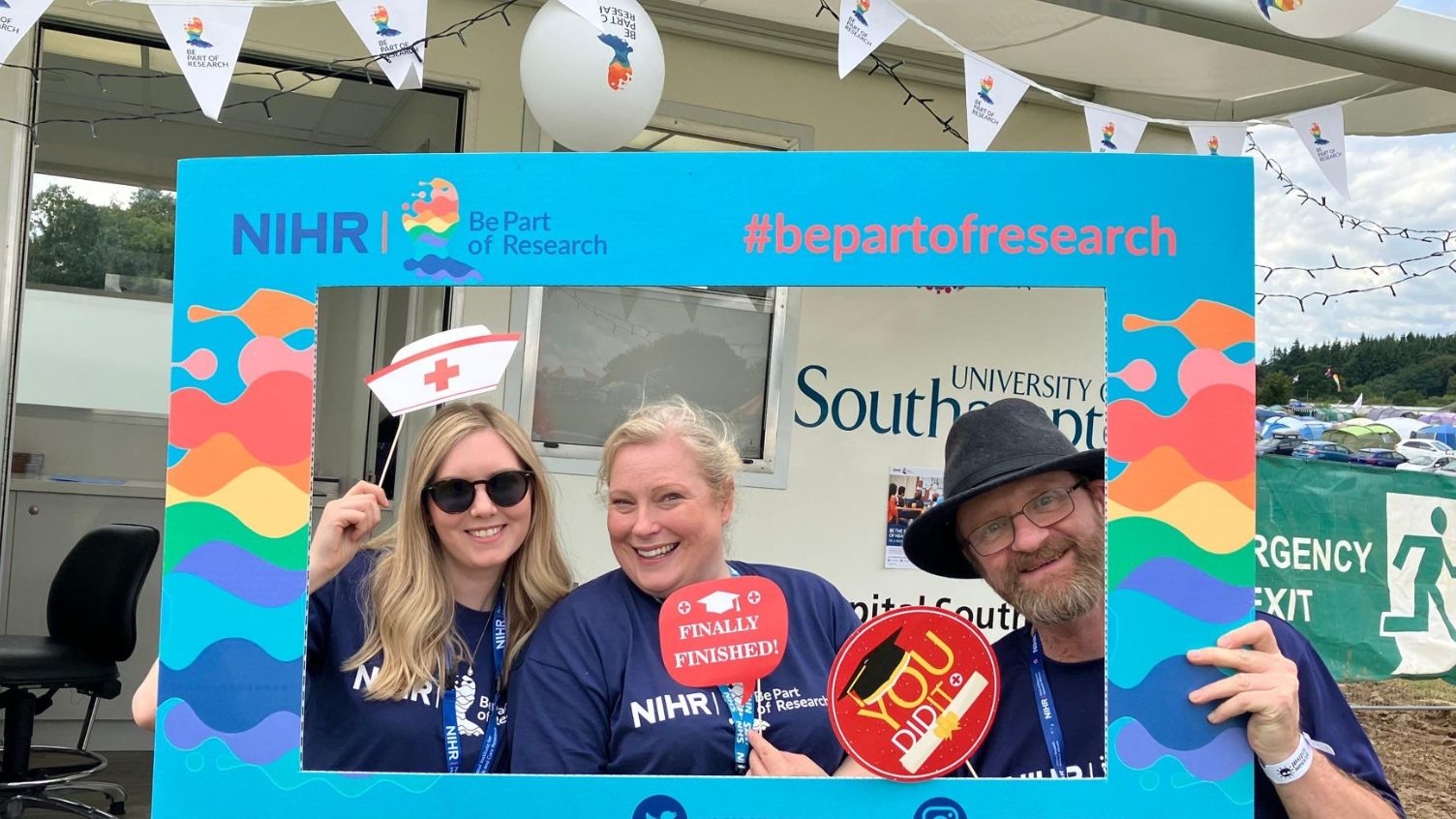Your Path in Research: Christina Uwins discusses her study hoping to improve ovarian cancer treatment through robotic surgery
- 11 May 2021
- 4 min read
Miss Christina Uwins, Senior Clinical Research Fellow in Robotic Gynaecological Oncology at Royal Surrey NHS Foundation Trust, has been awarded NIHR Clinical Research Network Kent, Surrey and Sussex Greenshoots funding – dedicated funds to support healthcare professionals to become principal investigators – for her MIRRORS project, which is striving to improve care for patients with ovarian cancer.
In Your Path in Research - a series that uncovers the research community across the National Institute for Health Research Clinical Research Network Kent, Surrey and Sussex region - Christina Uwins discusses her inspirations, motivations, ambitions and, of course, her research.
Tell us more about the MIRRORS study
We are assessing whether robotic surgery provides the same surgery for women with advanced ovarian cancer but with quicker recovery and improved quality of life. We would also like to see whether this then enables women to start back on chemotherapy sooner.
Typically ovarian cancer surgery is performed with a laparotomy, which involves a 30 to 40cm long incision in the abdomen. Recovery time in hospital is around six days and it is not unusual for patients to need intensive care treatment during this time.
Royal Surrey has been using robotic surgery for more than a decade to operate, almost exclusively, on women with endometrial and cervical cancer. This less intrusive surgery has resulted in much quicker recovery times. Typically, following robotic surgery, patients require just one night hospital care and are sometimes even discharged on the same day. Since introducing robotic surgery for these cancers the average blood loss during operations has reduced from 600ml to just 50ml and median length of stay reduced from 6 days to one night.
The MIRRORS project, which is the brainchild of my consultant supervisor Mr Simon Butler Manual, hopes to deliver similar benefits to ovarian cancer patients."
We've been open for just over six months and so far we've had an overwhelmingly positive response to the study. We hoped at least 25 per cent of patients offered robotic surgery would agree and so far everyone eligible has opted to be part of the study.*
Are you continuing clinical work alongside your research?
Yes, my clinical role involves either assisting or operating in theatre or assessing patients in clinic, and tracking them through the patient pathway - typical doctoring stuff!
What are your career ambitions?
Following this I would like to start sub-specialist training in gynaecology oncology with the aim of eventually becoming a consultant in gynaecological cancer surgery. With regards to MIRRORS I would like to get MIRRORS-RCT (randomised control trial) up and running soon after closing MIRRORS and stay very much involved. MIRRORS-RCT this is likely to continue for around another five years.
What were you doing before you became a researcher?
I was a senior obstetrics and gynaecology trainee based in London. I had finished my exams and was onto my higher training 'advanced training skills modules'. In order to apply for sub-speciality training in gynaecological oncology I needed research experience. I've been really fortunate that this role allows me to get clinical experience both surgically and within research.
What inspired you to become a researcher?
I've always enjoyed details that others might consider 'geeky'. I took an extra year at medical school to intercalate, spending six months doing lab-based work and producing a thesis at the end of it. My project was on the bacteria helicobacter pylori, using 2D electrophoresis (proteomics) which separates proteins by weight and charge. Proteomics provides a visual image of expressed proteins, which allowed us to examine the differences between lab-grown helicobacter pylori and those found in patients with disease. So it was pretty geeky stuff and I loved it!
What do you enjoy most about research?
Having dedicated time to think, focus on projects and really get to the bottom of topics in order to understand them by first principles.
Specifically with my MIRRORS project, I've enjoyed having a group of patients that I follow through from treatment and catch up with at regular points after surgery.
Also, I've really enjoyed having ownership of the project and being able to build it up from a concept to a fully-fledged clinical trial and something that will, hopefully, go on to bring real benefits to patient care. It's been bewildering and exhausting at times but extremely rewarding!
Have there been any challenges?
The paperwork, the unknowns and all the hoops I jumped through to set the project up! There are so many things involved in setting up a trial that you wouldn't even consider until you have gone through the process. They make perfect sense now but it was daunting at times.
What are your interests outside of work?
I have two small people at home who keep me fairly busy! I also enjoy being part of a running club, when we're not in lockdown, and doing arts and crafts when I get the time.
What advice would you give to someone setting out in research?
Find somebody who has gone through the process of setting up a research project recently. Things change so quickly that even experienced researchers won't necessarily have the most up-to-date information about how to set up a project and who to speak with about certain aspects, for example, sponsorship and applying for ethics.
*Since this article was first published, the initial feasibility phase of the MIRRORS project has been completed and results will be shared late October 2021.


